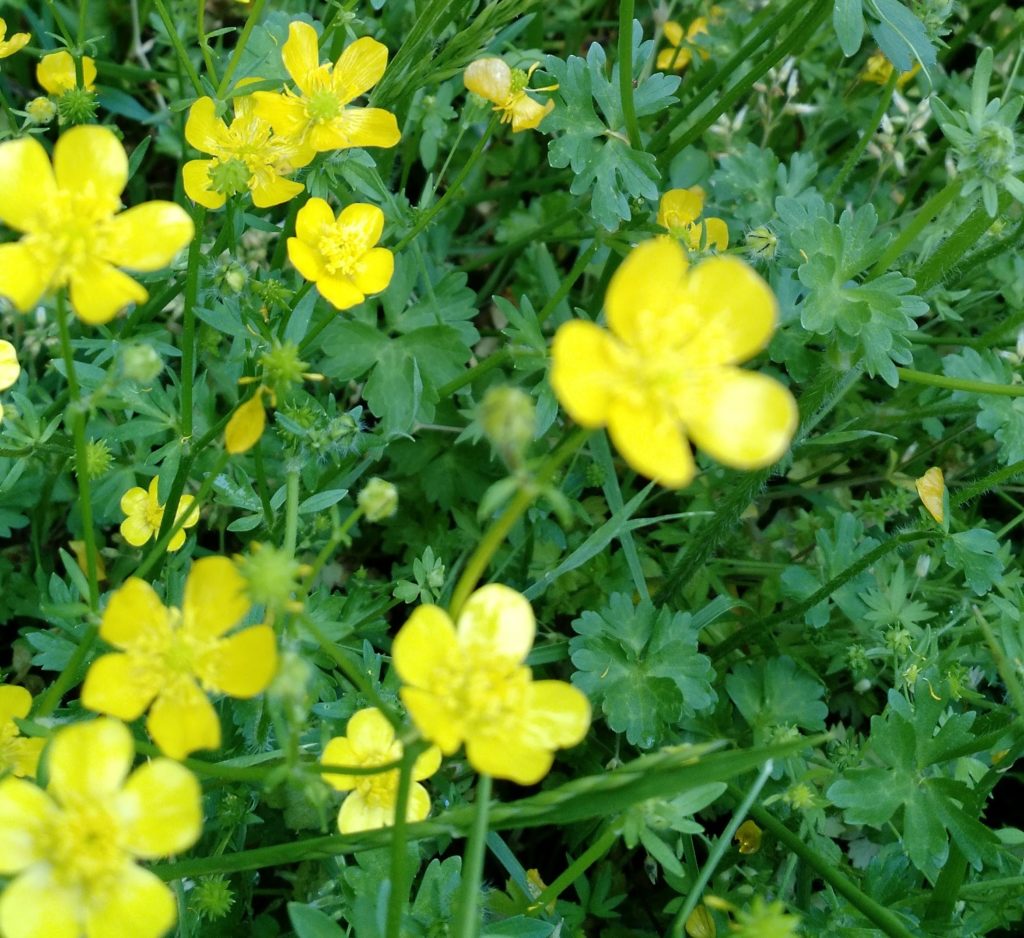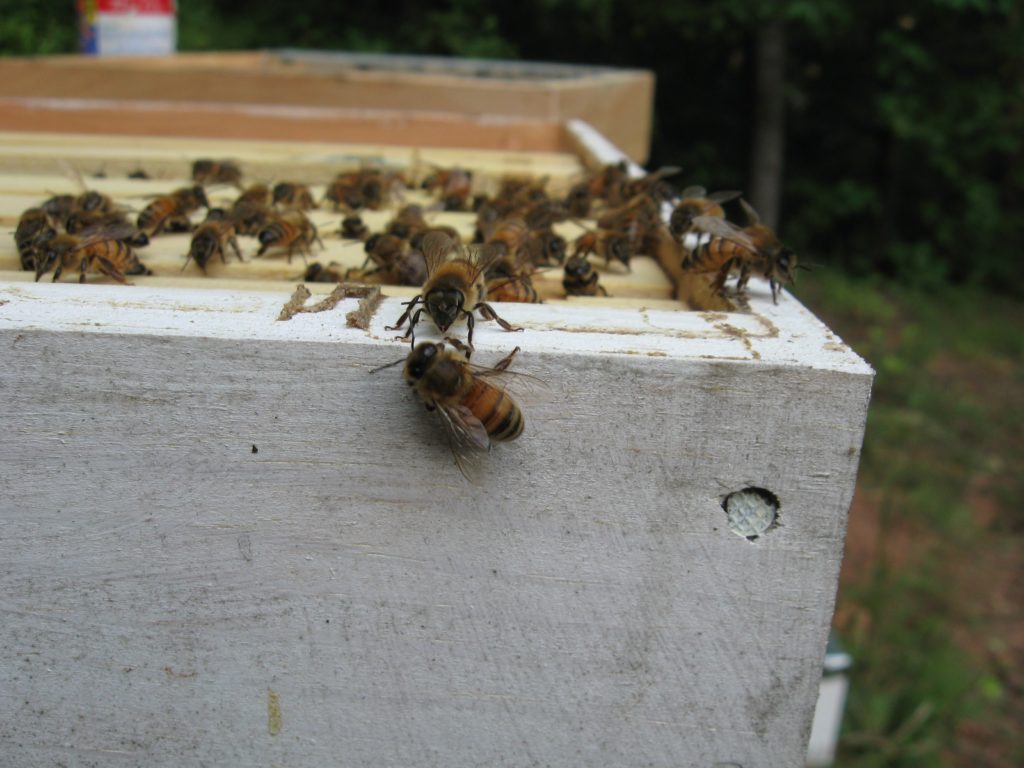RoundUp, Buttercup, and Beekeeping School
go.ncsu.edu/readext?651043
en Español / em Português
El inglés es el idioma de control de esta página. En la medida en que haya algún conflicto entre la traducción al inglés y la traducción, el inglés prevalece.
Al hacer clic en el enlace de traducción se activa un servicio de traducción gratuito para convertir la página al español. Al igual que con cualquier traducción por Internet, la conversión no es sensible al contexto y puede que no traduzca el texto en su significado original. NC State Extension no garantiza la exactitud del texto traducido. Por favor, tenga en cuenta que algunas aplicaciones y/o servicios pueden no funcionar como se espera cuando se traducen.
Português
Inglês é o idioma de controle desta página. Na medida que haja algum conflito entre o texto original em Inglês e a tradução, o Inglês prevalece.
Ao clicar no link de tradução, um serviço gratuito de tradução será ativado para converter a página para o Português. Como em qualquer tradução pela internet, a conversão não é sensivel ao contexto e pode não ocorrer a tradução para o significado orginal. O serviço de Extensão da Carolina do Norte (NC State Extension) não garante a exatidão do texto traduzido. Por favor, observe que algumas funções ou serviços podem não funcionar como esperado após a tradução.
English
English is the controlling language of this page. To the extent there is any conflict between the English text and the translation, English controls.
Clicking on the translation link activates a free translation service to convert the page to Spanish. As with any Internet translation, the conversion is not context-sensitive and may not translate the text to its original meaning. NC State Extension does not guarantee the accuracy of the translated text. Please note that some applications and/or services may not function as expected when translated.
Collapse ▲This week I would like to share some questions that were recently asked at the N.C. Cooperative Extension, Caldwell County Center. I hope you find these questions and answers helpful. If you have specific questions not answered here, please contact me and my team at the office.
Question: Is RoundUp safe?
Answer: Glyphosate is the active ingredient in the herbicide RoundUp. Glyphosate is a widely used herbicide that controls broadleaf weeds and grasses. It has been registered as a pesticide by the United States Environmental Protection Agency (EPA) since 1974. Registered pesticides undergo review every 15 years.
Because of public pressure, the EPA did an interim review of glyphosate again. The EPA stated in the latest interim review, “EPA continues to find that there are no risks of concern to human health when glyphosate is used in accordance with its current label. EPA also found that glyphosate is unlikely to be a human carcinogen.”
For this reason, I continue to say glyphosate is a safe product when used according to the label.
Question: How do I control buttercup in my pastures?

Most recognize buttercups by the bright yellow flower, but right now only the leaves are visible. Now is the time to control this weed so it does not complete with pasture grasses.
Answer: Buttercups in Caldwell County are winter annuals. Annuals grow from seed each year. Winter annuals sprout in the fall, grow during the winter, and flower in the spring so they can make seeds before dying in the heat of the summer.
When pastures are grazed short in the fall, it exposes the soil surface to sunlight. Sunlight is important for buttercup seed to germinate. If the soil surface is not exposed to sunlight, the seeds will not germinate.
Take time to scout your pastures for buttercup. Once you learn to recognize the unique leaf shape of bulbous buttercup and hairy buttercup, it will be almost as obvious as their bright yellow flowers.
If weed control is needed, 2,4-D Ester will do a great job controlling buttercups in January and February. Once buttercups bloom, it is too late to spray for control. They will die soon anyway. 2,4-D Ester can be mixed with most liquid fertilizers or just applied with water. Pick a time when there will be a few warm days to make the application. Adding in a non-ionic surfactant, sometimes called soap, will improve the herbicide’s effectiveness.
If you do have problems with buttercups and other weeds in your pasture, it is time to evaluate your pasture management. Buttercups are an indication of overgrazing.
Question: How can I learn to be a beekeeper?

These bees are exposed to the outside while their hive is being inspected. If managing bees sounds like fun, then you should attend the Caldwell County Beekeepers Bee School starting February 15.
Answer: The Caldwell County Beekeepers Association has been offering a beginner bee school for many years. Local Master Beekeepers lead this school. It is a fantastic way for non-beekeepers to learn about bee biology, hive management, and gain hands-on practical beekeeping experience.
If you have an interest in keeping bees, this is the right way to get started. Beekeeping is more complicated than it used to be. There are more pests and parasites that affect bees now as compared to 15 or 20 years ago. For all practical purposes, bees are not able to survive without management from humans. There are no “wild honey bees” anymore.
The bee school is a three-session class that meets February 15, 20, and 22, 2020.
For answers to your agriculture questions, call the N.C. Cooperative Extension, Caldwell County Center at 828-757-1290 or visit us online anytime.




